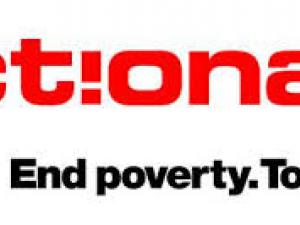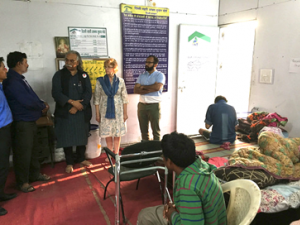GOOD PRACTICE: Social Behaviour Change Methods Used to Raise Awareness of Social Protection (ActionAid, India)
Discussion details

The Team Leader of the RNSF Project, Mei Zegers, carried out a field visit to ActionAid, India, from the 7th to the 11th of March 2016 with an additional networking meeting on 15 March 2016.The visit was organized in the framework of the support facility to the project “Securing rights and sustainable livelihoods through collective action and education for people dependent on the informal economy in India”. One of the main purposes of the mission was to identify successes and challenges and associated good practices and lessons learned of the IP. In the IESF blog we are going to publish each of them.

Social Behaviour Change Methods Used to Raise Awareness of Social Protection and Other Available Programming
The organisation interviewed uses a combination of approaches to raise awareness and change behaviours of community members so that they access available social protection and other available supportive community development programming. The NGO found that relying on just one approach will not bring about results; rather a combination of approaches must be used to attain the objective of changed attitudes and behaviours. The population is also stimulated to participate in advocacy with government themselves so as to improve services in their localities.
The combination approach includes:
- Inclusion of female staff to ease the interaction with the women in the community, as they are the main focus of the NGO.
- Inclusion of men in the awareness raising on rights issues and available social protection services. Example from a previous project included forming 8 young male groups. Every group had 15-20 members who were educated about women’s rights, sexual rights, and domestic violence. Why women also have decision-making powers that can contribute to household welfare.
- Implementation door-to-door visits and personal discussions with households.
- Holding of various types of community events that include group discussions on the major topics on rights and access to social protection and other services.
- Conducting meetings in NGO offices and use technology such as showing movies and involving them in holding motivational speeches.
- Carrying out direct actions to help the community members open bank accounts, obtain identity cards, and access other services
- Organising street vendors to engage in advocacy on their rights with the local government.
- Being persistent despite initial challenges in changing attitudes and behaviours. The NGO found that, in the beginning, it was very challenging but persistence in SBCC resulted in change. These concepts were new for the population and both women and men were not ready to accept them. They did not know about the rights and thought rights were only for men.
Image
___________________________________________________________________
Site Visit to Implementing Partners and Networking with Informal Economy
Related Experts in India
7-11 March and 15 March 2016
Author: Mei Zegers, Team Leader of RNSF Project
Log in with your EU Login account to post or comment on the platform.